Normally, I don’t have time to check out the upcoming books for the year, but I made a conscious effort to do so — at least for poetry.
Below are the books I’m looking forward to this year:
Whereas by Whiting Award winner Layli Long Soldier, published by Graywolf Press in March 2017.
WHEREAS her birth signaled the responsibility as mother to teach what it is to be Lakota therein the question: What did I know about being Lakota? Signaled panic, blood rush my embarrassment. What did I know of our language but pieces? Would I teach her to be pieces? Until a friend comforted, Don’t worry, you and your daughter will learn together. Today she stood sunlight on her shoulders lean and straight to share a song in Diné, her father’s language. To sing she motions simultaneously with her hands; I watch her be in multiple musics.
Afterland by Mai Der Vang, also published by Graywolf Press in April 2017.
Afterland is a powerful, essential collection of poetry that recounts with devastating detail the Hmong exodus from Laos and the fate of thousands of refugees seeking asylum. Mai Der Vang is telling the story of her own family, and by doing so, she also provides an essential history of the Hmong culture’s ongoing resilience in exile. Many of these poems are written in the voices of those fleeing unbearable violence after U.S. forces recruited Hmong fighters in Laos in the Secret War against communism, only to abandon them after that war went awry. That history is little known or understood, but the three hundred thousand Hmong now living in the United States are living proof of its aftermath. With poems of extraordinary force and grace, Afterland holds an original place in American poetry and lands with a sense of humanity saved, of outrage, of a deep tradition broken by war and ocean but still intact, remembered, and lived.
Said Not Said by Fred Marchant, from my mentor and friend who was recently honored by the city of Boston, and it is also from Graywolf Press in May 2017.
In this important and formally inventive new poetry collection, Fred Marchant brings us into realms of the intractable and the unacceptable, those places where words seem to fail us and yet are all we have. In the process he affirms lyric poetry’s central role in the contemporary moral imagination. As the National Book Award winner David Ferry writes, “The poems in this beautiful new book by Fred Marchant are autobiographical, but, as is always the case with his poems, autobiographical of how he has witnessed, with faithfully exact and pitying observation, the sufferings in the lives of other people, for example the heartbreaking series of poems about the fatal mental suffering of his sister, and the poems about other peoples, in Vietnam, in the Middle East, written about with the noble generosity of feeling that has always characterized his work, here more impressively even than before.”
Said Not Said is a poet’s taking stock of conscience, his country’s and his own, and of poetry’s capacity to speak to what matters most.
Incendiary Art: Poems by Patricia Smith, published by Triquarterly in February 2017.
ne of the most magnetic and esteemed poets in today’s literary landscape, Patricia Smith fearlessly confronts the tyranny against the black male body and the tenacious grief of mothers in her compelling new collection, Incendiary Art. She writes an exhaustive lament for mothers of the “dark magicians,” and revisits the devastating murder of Emmett Till. These dynamic sequences serve as a backdrop for present-day racial calamities and calls for resistance. Smith embraces elaborate and eloquent language— “her gorgeous fallen son a horrid hidden / rot. Her tiny hand starts crushing roses—one by one / by one she wrecks the casket’s spray. It’s how she / mourns—a mother, still, despite the roar of thorns”— as she sharpens her unerring focus on incidents of national mayhem and mourning. Smith envisions, reenvisions, and ultimately reinvents the role of witness with an incendiary fusion of forms, including prose poems, ghazals, sestinas, and sonnets. With poems impossible to turn away from, one of America’s most electrifying writers reveals what is frightening, and what is revelatory, about history.
Cold Pastoral: Poems by Rebecca Dunham from Milkweed Editions in March 2017.
A searing, urgent collection of poems that brings the lyric and documentary together in unparalleled ways—unmasking and examining the specter of manmade disaster.
The explosion on the Deepwater Horizon oil rig. Hurricane Katrina. The Flint water crisis. Thousands dead, lives destroyed, and a natural world imperiled by human choices. This is the litany of our time—and these are the events that Rebecca Dunham traces, passionately and brilliantly, in Cold Pastoral. In poems that incorporate interviews and excerpts from government documents and other sources—poems that adopt the pastoral and elegiac traditions in a landscape where “I can’t see the bugs; I don’t hear the birds”—Dunham finds the intersection between moral witness and shattering art.
Hard Child by Natalie Shapero from Copper Canyon Press in April 2017.
Thought-provoking and sardonically expressive, Shapero is a self-proclaimed “hard child”—unafraid of directly addressing bleakness as she continually asks what it means to be human and to bring new life into the world. Hard Child is musical and argumentative, deadly serious yet tinged with self-parody, evoking the spirit of Plath while remaining entirely its own.
My Mother Was a Freedom Fighter by Aja Monet from Haymarket Books in May 2017.
Textured with the sights and sounds of growing up in East New York in the nineties, to school on the South Side of Chicago, all the way to the olive groves of Palestine, My Mother Is a Freedom Fighter is Aja Monet’s ode to mothers, daughters, and sisters—the tiny gods who fight to change the world. Complemented by striking cover art from Carrie Mae Weems, these stunning poems tackle racism, sexism, genocide, displacement, heartbreak, and grief, but also love, motherhood, spirituality, and Black joy.
Eat This Poem: A Literary Feast of Recipes Inspired by Poetry by Nicole Gulotta from Roost Books in March 2017.
Inspired by her popular blog by the same name, the Eat This Poem cookbook features more than 75 new recipes paired alongside verse from 25 of America’s most beloved poets. Forage mushrooms with Mary Oliver, then wander into your kitchen to stir creamy truffle risotto. Study the skin of a pear with Billy Collins while you bake a warm vanilla-pear crumble. And honor the devoted work of farmers with Wendell Berry while snacking on popcorn dusted with rosemary and drizzled with brown butter.
Beating the Graves by Tsitsi Ella Jaji from University of Nebraska Press in March 2017.
The poems in Tsitsi Ella Jaji’s Beating the Graves meditate on the meaning of living in diaspora, an experience increasingly common among contemporary Zimbabweans. Vivid evocations of the landscape of Zimbabwe filter critiques of contemporary political conditions and ecological challenges, veiled in the multiple meanings of poetic metaphor. Many poems explore the genre of praise poetry, which in Shona culture is a form of social currency for greeting elders and peers with a recitation of the characteristics of one’s clan. Others reflect on how diasporic life shapes family relations.
The praise songs in this volume pay particular homage to the powerful women and gender-queer ancestors of the poet’s lineage and thought. Honoring influences ranging from Caribbean literature to classical music and engaging metaphors from rural Zimbabwe to the post-steel economy of Youngstown, Ohio, Jaji articulates her own ars poetica. These words revel in the utter ordinariness of living globally, of writing in the presence of all the languages of the world, at home everywhere, and never at rest.
The Thin Wall by Martha Rhodes from University of Pittsburgh Press in February 2017.
Past Praise for Mother Quiet:
“The aim of poetry (and the higher kind of thriller) is to be unexpected and memorable. So a poem about death might treat it in a way that combines the bizarre and the banal: the Other Side as some kind of institution—a creepy hospital, an officious hotel or retirement home. Martha Rhodes takes such an approach in ‘Ambassadors to the Dead,’ from her abrupt, unsettling, artfully distorted, indelible new book Mother Quiet. Blending the matter-of-fact with the surreal, as a way of comprehending the stunning, final reality, Rhodes is an inheritor of Emily Dickinson’s many poems on the same subject.”
—Robert Pinsky, Washington Post
Chiapas Maya Awakening: Contemporary Poems and Short Stories by Nicolás Huet Bautista (Editor), Sean S. Sell (Translator), Inés Hernández-Ávila (Introduction), Marceal Méndez (Foreword) from University of Oklahoma Press in January 2017.
Mexico s indigenous people speak a number of rich and complex languages today, as they did before the arrival of the Spanish. Yet a common misperception is that Mayas have no languages of their own, only dialectos, and therefore live in silence. In reality, contemporary Mayas are anything but voiceless. Chiapas Maya Awakening, a collection of poems and short stories by indigenous authors from Chiapas, Mexico, is an inspiring testimony to their literary achievements. A unique trilingual edition, it presents the contributors works in the living Chiapas Mayan languages of Tsotsil and Tseltal, along with English and Spanish translations.
As Sean S. Sell, Marceal Mendez, and Ines Hernandez-Avila explain in their thoughtful introductory pieces, the indigenous authors of this volume were born between the mid-1970s and the mid-1990s, a time of growing cultural awareness among the native communities of Chiapas.Although the authors received a formal education, their language of instruction was Spanish, and they had to pursue independent paths to learn to read and write in their native tongues. In the book s first half, devoted to poetry, the writers consciously speak for their communities. Their verses evoke the quetzal, the moon, and the sea and reflect the identities of those who celebrate them. The short stories that follow address aspects of modern Maya life. In these stories, mistrust and desperation yield violence among a people whose connection to the land is powerful but still precarious.
Chiapas Maya Awakening demonstrates that Mayas are neither a vanished ancient civilization nor a remote, undeveloped people. Instead, through their memorable poems and stories, the indigenous writers of this volume claim a place of their own within the broader fields of national and global literature.”
What books are you looking forward to in 2017?
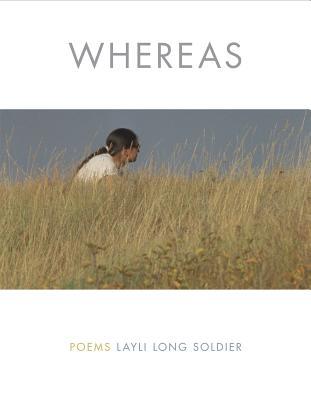











 About the Poet:
About the Poet:

 About the Poet:
About the Poet: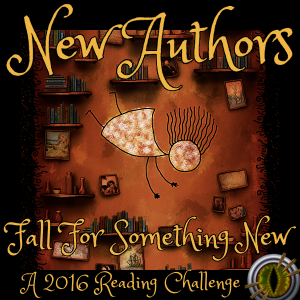

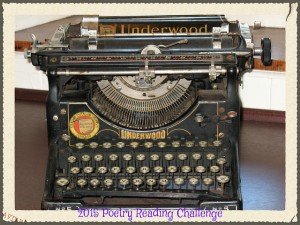
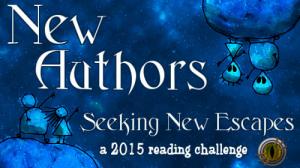
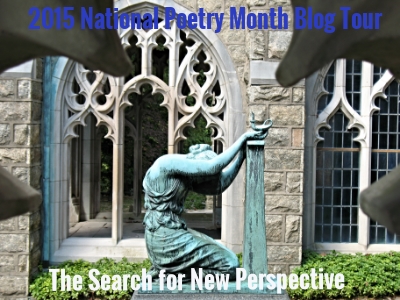

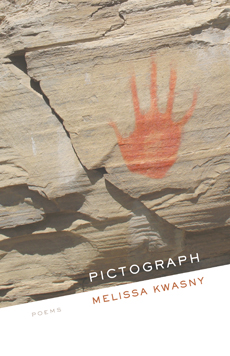











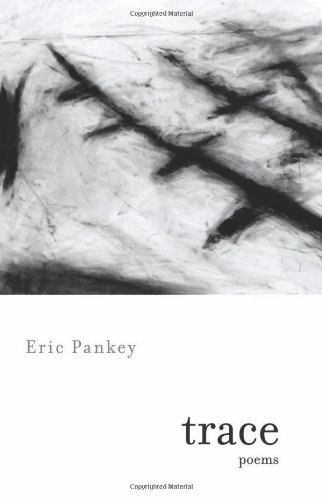

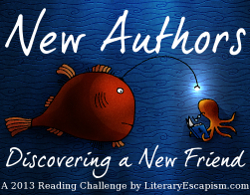
 The Fact of the Matter by Sally Keith, published by Milkweed Editions on 100 percent post-consumer waste paper and who will be at the 2013 Gaithersburg Book Festival) allows nature to run rampant through the poems, lifting up the reader and at the same time opening the door to reality. While we strive to compartmentalize our lives to the before, during, and after of pivotal moments, the reality is that these moments are not separate and cannot be separated. This analytical approach to our very journeys runs contrary to the emotional and experiential ways in which we live. The struggle between the logical part of the brain and the emotional part can be seen in every poem, but it is particularly pronounced in the poems “Providence,” “Knot,” and “Crane.”
The Fact of the Matter by Sally Keith, published by Milkweed Editions on 100 percent post-consumer waste paper and who will be at the 2013 Gaithersburg Book Festival) allows nature to run rampant through the poems, lifting up the reader and at the same time opening the door to reality. While we strive to compartmentalize our lives to the before, during, and after of pivotal moments, the reality is that these moments are not separate and cannot be separated. This analytical approach to our very journeys runs contrary to the emotional and experiential ways in which we live. The struggle between the logical part of the brain and the emotional part can be seen in every poem, but it is particularly pronounced in the poems “Providence,” “Knot,” and “Crane.”


